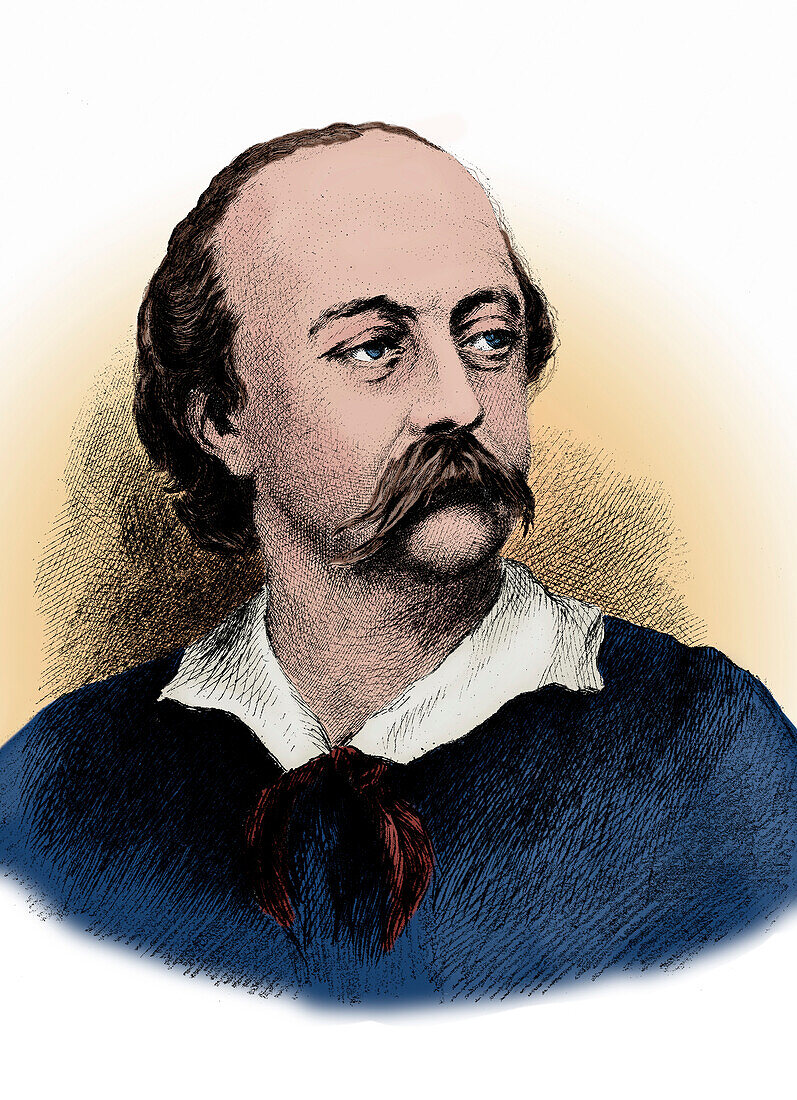Gustave Flaubert, French author
Bildnummer 13502616

| Gustave Flaubert (December 12, 1821 - May 8, 1880) was a French author who was the leading exponent of literary realism of his country. His first finished work was November, a novella, which was completed in 1842. In 1850, Flaubert began work on Madame Bovary. The novel, which took five years to write, was serialized in the Revue de Paris in 1856. The government brought an action against the publisher and author on the charge of immorality, which was heard during the following year, but both were acquitted. When Madame Bovary appeared in book form, it met with a warm reception. It is now considered his masterpiece, as well as a seminal work of realism and one of the most influential novels ever written. Flaubert believed in, and pursued, the principle of finding 'le mot juste' (the right word), which he considered as the key means to achieve quality in literary art. Flaubert suffered from venereal diseases most of his life. His health declined and he died of a cerebral haemorrhage in 1880 at the age of 58. | |
| Lizenzart: | Lizenzpflichtig |
| Credit: | Science Photo Library / Science Source |
| Bildgröße: | 3591 px × 4954 px |
| Modell-Rechte: | nicht erforderlich |
| Eigentums-Rechte: | nicht erforderlich |
| Restrictions: | - |
Preise für dieses Bild ab 15 €
Universitäten & Organisationen
(Informationsmaterial Digital, Informationsmaterial Print, Lehrmaterial Digital etc.)
ab 15 €
Redaktionell
(Bücher, Bücher: Sach- und Fachliteratur, Digitale Medien (redaktionell) etc.)
ab 30 €
Werbung
(Anzeigen, Aussenwerbung, Digitale Medien, Fernsehwerbung, Karten, Werbemittel, Zeitschriften etc.)
ab 55 €
Handelsprodukte
(bedruckte Textilie, Kalender, Postkarte, Grußkarte, Verpackung etc.)
ab 75 €
Pauschalpreise
Rechtepakete für die unbeschränkte Bildnutzung in Print oder Online
ab 495 €
